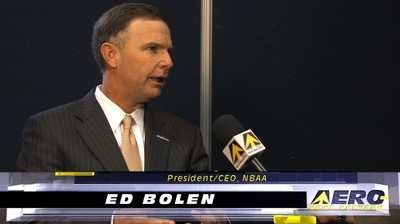Final Action Comes Following A Letter From the NTIA
The FCC has pulled the plug on LightSquared's attempt to
establish a 4G wireless data network on frequencies adjacent to
those used by GPS.

The FCC's rejection of LightSquared's plan follows a final
recommendation, issued to federal regulators February 14 by the
National Telecommunications and Information Administration (NTIA)
– which is a joint panel comprised of nine federal agencies
– saying NTIA "cannot support" further deployment of
LightSquared's technology.
"...We conclude that LightSquared's proposed mobile broadband
network will impact GPS services and that there is no practical way
to mitigate the potential interference at this time," said U.S.
Department of Commerce Assistant Secretary for Communications and
Information Lawrence E. Strickling, in a letter, sent on behalf of
the NTIA, to FCC Chairman Julius Genachowski.
"Furthermore," Strickling's letter continues, "while GPS
equipment developers may be able to mitigate these issues via new
technology in the future, the time and money required for federal,
commercial, and private sector users to replace the technology in
the field and in the marketplace, on aircraft, and in integrated
national security systems cannot support the scheduled deployment
of terrestrial services proposed by LightSquared." Read the letter
Strickling sent to the FCC on behalf of the NTIA.
FCC spokesperson Tammy Sun acknowledged NTIA's call for
LightSquared's plans to be placed on indefinite hold. "NTIA, the
federal agency that coordinates spectrum uses for the military and
other federal government entities, has now concluded that there is
no practical way to mitigate potential interference at this time,"
read a statement from Sun, who added that the FCC's International
Bureau intended to vacate the conditional waiver for LightSquared's
application issued by the FCC in January 2011, before the results
of tests demonstrating catastrophic interference with GPS receivers
were widely known."

The NBAA applauded the action, calling it a "very
important step." "More than 60 percent of business aircraft
operating in the U.S. are equipped with various GPS capabilities
required for instrument approaches at over 5,000 airports, and even
more have en-route GPS capability," said NBAA president and CEO Ed
Bolen. "NBAA Members don't oppose new technology systems like the
one proposed by LightSquared, as long as they don't compromise
aviation safety by interfering with the GPS systems our Members
rely on for navigation and communications.
"It's also worth noting," Bolen continued, "that protecting GPS
isn't just a critical issue for the business aviation community
– it is also relied upon by rescue workers, farmers, military
operators, consumers and other users."
LightSquared said in a news release issued Tuesday before the
FCC's response to the NTIA that the body's recommendation relied on
the flawed conclusions of the PNT ExCOM about LightSquared’s
potential impact on GPS.

"LightSquared profoundly disagrees with both the NTIA’s
and the PNT’s recommendations, which disregard more than a
decade of regulatory orders, and in doing so, jeopardize private
enterprise, jobs and investment in America's future," the company
said in the news release. "NTIA relies on interference standards
that have never been used in this context, and were forced by the
GPS community in order to reach the conclusions presented today.
This, together with a severely flawed testing process that relied
on obsolete and niche devices, shows that the FCC should take the
NTIA's recommendation with a generous helping of salt. Despite
LightSquared’s success in finding technical solutions and the
acknowledgement by a senior government official that GPS receivers
are specifically designed to rely on spectrum licensed to
LightSquared, it is extremely disappointing that this
recommendation was made today."
The Wall Street Journal reports that Lightsquared has
proposed a frequency swap with the Department of Defense for
spectrum the DoD currently uses for aircraft testing as a way to
potentially save its planned service. The frequencies are further
away from the GPS band than the company's original LTE network.
LightSquared said it was one of several options the company is
considering, and may not pursue it. There was no immediate comment
from the DoD on the idea.
 ANN's Daily Aero-Linx (05.06.25)
ANN's Daily Aero-Linx (05.06.25) ANN's Daily Aero-Term (05.06.25): Ultrahigh Frequency (UHF)
ANN's Daily Aero-Term (05.06.25): Ultrahigh Frequency (UHF) ANN FAQ: Q&A 101
ANN FAQ: Q&A 101 Classic Aero-TV: Virtual Reality Painting--PPG Leverages Technology for Training
Classic Aero-TV: Virtual Reality Painting--PPG Leverages Technology for Training Airborne 05.02.25: Joby Crewed Milestone, Diamond Club, Canadian Pilot Insurance
Airborne 05.02.25: Joby Crewed Milestone, Diamond Club, Canadian Pilot Insurance





